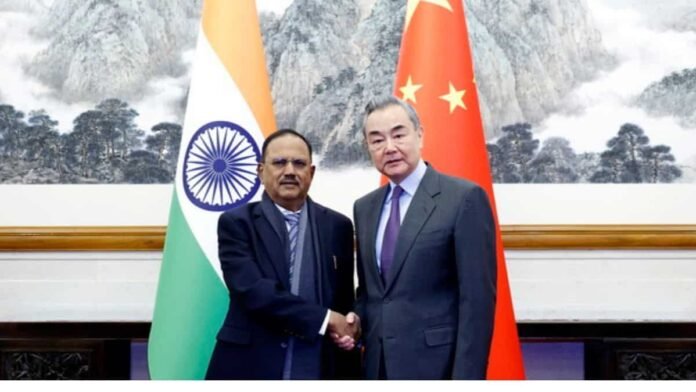Indian National Security Adviser (NSA) Ajit Doval and his Chinese counterpart Wang Yi held the 23rd meeting of the Special Representatives of India and China in Beijing. The talks were held for the first time in five years after tensions soared between the two nations.
Both leaders met according to the decision taken during the recent meeting between Prime Minister Narendra Modi and President Xi Jinping in Kazan for them to meet at an early date to oversee the management of peace and tranquillity in border areas and to explore a fair, reasonable, and mutually acceptable solution to the boundary question.
Doval and Wang Yi stressed the importance of maintaining a political perspective of the overall bilateral relationship and seeking a fair and mutually acceptable framework for the settlement of the boundary question.
The representatives “positively affirmed the implementation of the latest disengagement agreement of October 2024, resulting in patrolling and grazing in relevant areas,” the Ministry of External Affairs said in a statement.
They further underlined the importance of maintaining peace and tranquility in the border areas to promote the overall development of the relationship between the two countries.
“They emphasised the need to ensure peaceful conditions on the ground so that issues on the border do not hold back the normal development of bilateral relations,” the statement read.
Moreover, based on the events of 2020, both representatives also discussed various measures to maintain peace on the border and advance effective management.
Watch | India-China to Hold Special Representatives Dialogue
They decided to use, coordinate, and guide the relevant diplomatic and military mechanisms towards this purpose.
Further, both the representatives provided a green signal for cross-border cooperation and exchanges, including the resumption of the Kailash Mansarovar Yatra, data sharing on trans-border rivers, and border trade.
The border standoff between India and China began in eastern Ladakh along the LAC in 2020 and was sparked by Chinese military actions. It led to prolonged tensions between the two nations, significantly straining their relations.
(With inputs from agencies)


